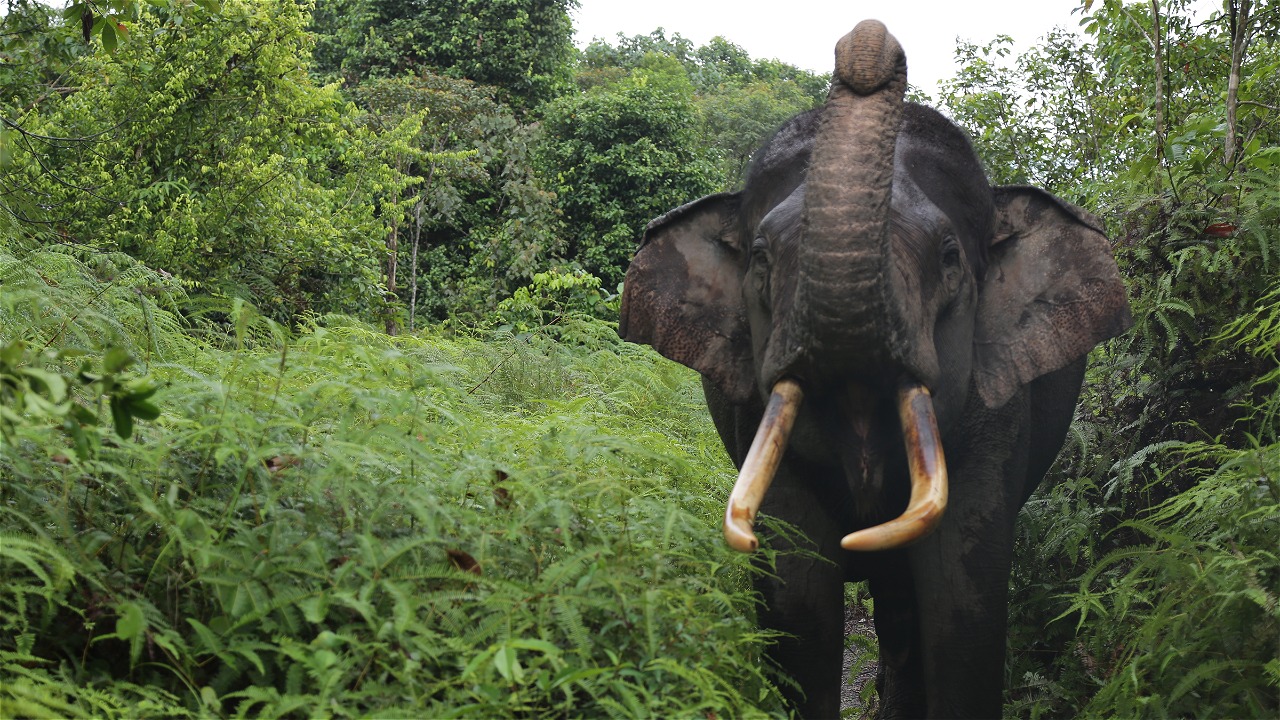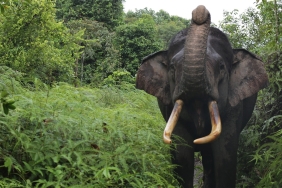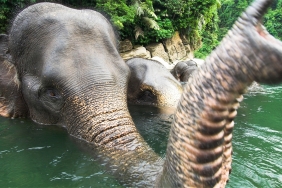PEMERIHAN AND SUKARAJA TNBBS COMMUNITIES LEARN HUMAN - ELEPHANT CONFLICT MITIGATION
By: Hijrah Nasir
The increasing rate of deforestation in the TNBBS area in recent decades is a major threat to the wildlife that resides there, including Sumatran elephants. The deteriorating condition of their habitat poses a problem because elephants are out foraging during the harvest season. The degree of human-elephant conflict is also related to land cover, river distance, slope level, rainfall and elephant movement time. One of the influential factors is the presence of agricultural land, where human-elephant conflict increases 7.37 times for every 0.52 ha increase in agricultural land.
One of the challenges faced by communities in Pemerihan Village and Sukaraja Village, Pesisir Barat Regency, Lampung Province, which directly borders the TNBBS, is elephant disturbance and attacks on residents' gardens during the harvest season. Villagers here generally plant rice and corn commodities in addition to cocoa and pepper. This type of crop and harvest season greatly influences the frequency of wild elephant presence in their gardens, leading to conflicts. From 1999 to 2015, there were 64 cases of human-elephant conflict found around the TNBBS area, especially in Pemerihan Village, West Pesisir Regency, Tanggamus. The peak was in 2003 which reached 13 cases, but decreased significantly to 9 cases, until it became 4 cases in 2015. The lack of a variety of effective handling methods causes the same incident to repeat almost every year and causes community losses.
Therefore, through the Human Elephant Conflict mitigation training, WWF Indonesia hopes that this activity can increase the capacity of the community related to HEC and is expected to be able to synergize government and community rules related to institutions in handling this conflict.
This training was conducted in 2 villages namely Sukaraja Village, Semaka District, Tanggamus and Pamerihan village, Pesisir Barat Regency which took place from February 6 - 11, 2017. In Pemerihan Resort, there were 20 participants consisting of the community (community groups concerned about conflict in Srimulyo Hamlet), 8 members of the elephant friend forum in Sukoharjo Hamlet, MMP and Pemerihan Resort officers.
In the training in these two villages, Syamsuardi from WWF Jambi as the speaker explained the importance of preventive measures so that elephants do not enter people's fields and how to handle when elephants have already entered. In addition, the speaker also emphasized the importance of forming a group in the community that functions to deal with conflicts between humans and elephants and emphasis on not gardening in the main path of elephants.
So far, the technical handling of elephants carried out by the community in Sukaraja Village is by using mercon, sulfur, siren, and spiritus. While in Pemerihan Village, the mitigation methods that have been used by the community are using fireballs, firecrackers, carbide cannons and methylated spirits. Generally, the community has often driven away elephants, but it is still not well coordinated. So that it still causes quite severe damage. So far, assistance efforts have also often been carried out by Pemerihan resort officers and NGOs such as WWF and WCS. However, equipment support is still insufficient. Until now, the community has also used a monitoring tower to monitor the movement of wild elephants that threaten the community's plantations and fields.
In this training, the community also learned to assemble a carbide cannon and simulated its operation around the pemerihan river, followed by a simulation of driving wild elephants. Currently, the TNBBS Center explained that conflict management in Pemerihan has improved with the formation of the Elephant Friends Forum in Sukoharjo Hamlet, which has now formed a Conflict Care Community Group in Srimulyo Hamlet.
It is hoped that in the future, conflict handling can involve the entire pekon community through forums and groups that have been formed. Mr. Wishnu Sukmantoro said that elephant conflict management must prioritize the safety and health of wild elephants, as well as the safety of community assets and economy. Therefore, prevention is prioritized and the use of appropriate methods and the importance of support and assistance from other parties, especially the TNBBS Center and NGO partners in handling conflicts. Assistance and debriefing to the community is very helpful in reducing human-elephant conflict. In his explanation, the Head of Pekon Pemerihan revealed that the Pekon already has a plan to include human-elephant conflict mitigation efforts in the RPJMDes so that these conflict mitigation efforts receive funding assistance from village funds to maximize human-elephant conflict mitigation efforts.





